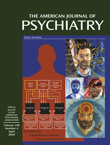Dr. Storosum and Colleagues Reply
To the Editor: We agree with Dr. Goldney that it might be possible to read a difference between the conclusion in the abstract and the text concerning the exclusion of patients at risk for suicide. However, almost all short-term placebo-controlled studies of major depression are conducted by excluding patients with “suicide risk.” Therefore, in practice, placebo-controlled short-term studies are conducted in a patient population in which patients with “suicide risk” are excluded.
With regard to long-term studies, in the placebo-controlled phase of withdrawal studies and the extension phase of extension studies, only responders or remitters are included (1). Therefore, the patients included in the placebo-controlled phase of withdrawal studies and the extension phase of extension studies are probably not at risk for suicide.
On the basis of our study results, including trials conducted in the United States and in the European Union, we are convinced that the conclusion in the abstract reflects the substance of the text and that fear of increased risk of (attempted) suicide in placebo groups should not be an argument against performing short-term and long-term placebo-controlled trials in studies of major depression.
1. Storosum JG, van Zwieten BJ, Vermeulen HD, Wohlfarth T, van den Brink W: Relapse and recurrence prevention in major depression: a critical review of placebo-controlled efficacy studies with special emphasis on methodological issues. Eur Psychiatry 2001; 16:327-335Crossref, Medline, Google Scholar



